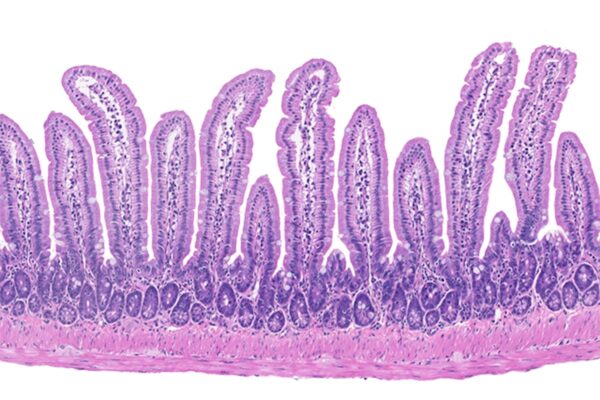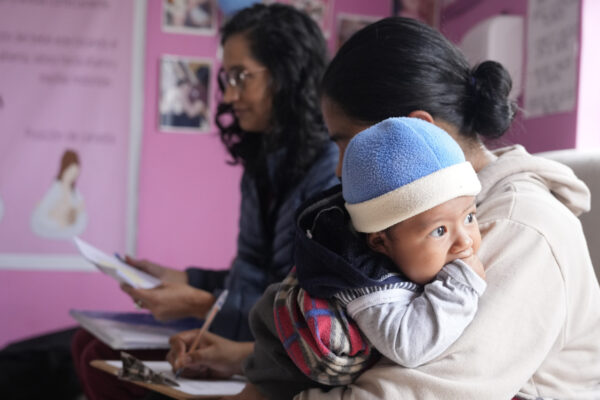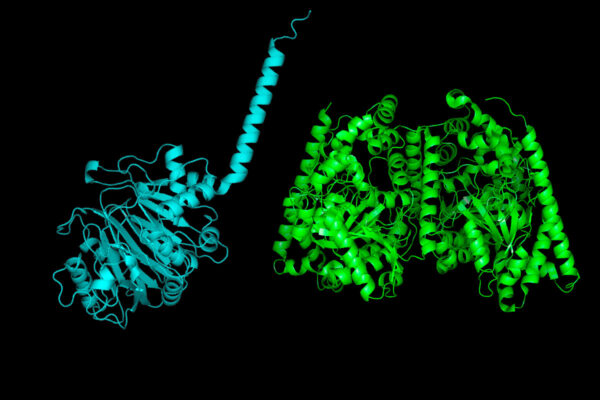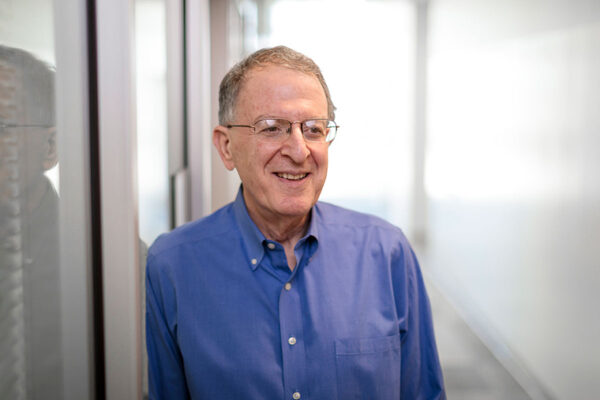How harmful bacteria hijack crops
Researchers at Washington University in St. Louis have identified the protein involved in costly plant infestations, pointing the way to possible protections.
Eating disorders a hidden crisis on college campuses
Researchers at Washington University led a study of nearly 30,000 students that shatters misconceptions about eating disorders, a common and misunderstood condition.
Eating disorder chat tool could improve access to care
Researchers at Washington University have received a $3.7 million grant to optimize a self-guided intervention for individuals with eating disorders.
Researchers find intestinal immune cell prevents food allergies
Researchers at WashU Medicine found that a small population of immune cells in the mouse intestine prevents allergic responses to food, suggesting that targeting such cells therapeutically could potentially lead to a new treatment for allergies.
Researchers to study health impact of changes to school lunch, breakfast programs
Sarah Moreland-Russell, at the Brown School at Washington University in St. Louis, has received a four-year $2.65 million grant from the National Institutes of Health (NIH) to understand how schools respond to changes in policy guiding school lunch and breakfast programs affect health.
Study identifies benefits, risks linked to popular weight-loss drugs
People prescribed the popular GLP-1 weight-loss drugs such as Ozempic and Mounjaro may experience benefits such as increased cognitive and behavioral health, according to scientists at WashU Medicine and the Veterans Affairs St. Louis Health Care System. But users may also face increased risks for pancreatitis and kidney conditions, among other illnesses.
Halting hidden hunger
Can improved nutrition during pregnancy help prevent stunted growth in children around the world? With partners in Ecuador, Lora Iannotti studies the effects of maternal diet on infant brain development.
How to grow food without light
In a new publication, researchers at the McKelvey School of Engineering make the case for electro-agriculture to help drastically cut carbon emissions.
Beneficial gut microbe has surprising metabolic capabilities
WashU Medicine researchers have discovered a gut bacterial enzyme with previously unknown metabolic capabilities that is associated with the growth benefits of a food therapy for malnourished children.
Gordon receives Nierenberg Prize
Jeffrey I. Gordon, MD, at WashU Medicine, has been awarded the 21st annual Nierenberg Prize for outstanding contributions to science in the public interest. He is widely considered the founder of the field of gut microbiome research.
Older Stories









